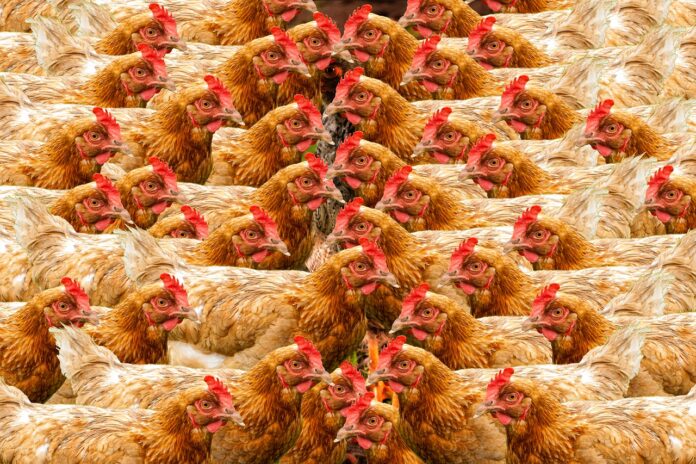Source: MakeLemonade.nz
From January next year, battery cages will be illegal in Aotearoa.However, colony cages, which also breach the Animal Welfare Act 1999, will remain legal.
Colony cages severely restrict the ability for hens to display normal patterns of behaviour, which is a requirement under the act.
The national animal welfare advisory committee reviewed the code of welfare for hens 10 years ago and recommended a phase-out period and ban on battery cages due to welfare concerns and direct breaches of the act.
In less than a year, the ban will come into effect for hens in battery cages, leaving 1.2 million hens to continue suffering in cramped colony caged conditions.
SAFE, Aotearoa’s leading animal rights organisation, says the code of welfare is now overdue for another review.
A Colmar Brunton poll found more than three quarters of New Zealanders support a ban on the caging of hens. All major supermarkets in Aotearoa will phase out the sale of cage eggs from as early as 2024.
Colony cages have been banned or are being phased out in parts of Europe, including Switzerland, Luxembourg, Germany, Denmark, Slovakia, Austria, the Czech Republic and Belgium. In the United States, nine states have already banned the sale and production of cage eggs.
The EU Commission last year announced it will ban the caging of farmed animals throughout the EU by 2027, freeing over 300 million animals from cages.
As of December 2020, 4,149,000 hens were being farmed for their eggs in Aotearoa. Of these, 29 percent were in colony cages, 27 percent were in battery cages; and 44 percent were in barn systems or on free-range farms.
The number of New Zealand hens living in battery and colony cages totalled 2,351,550 birds.
Almost all of Aotearoa’s leading egg purchasers have published cage-free egg commitments.
This includes all leading supermarkets, restaurant chains, hotel companies, retail outlets, leading foodservice groups and catering companies including parliament’s catering provider.



